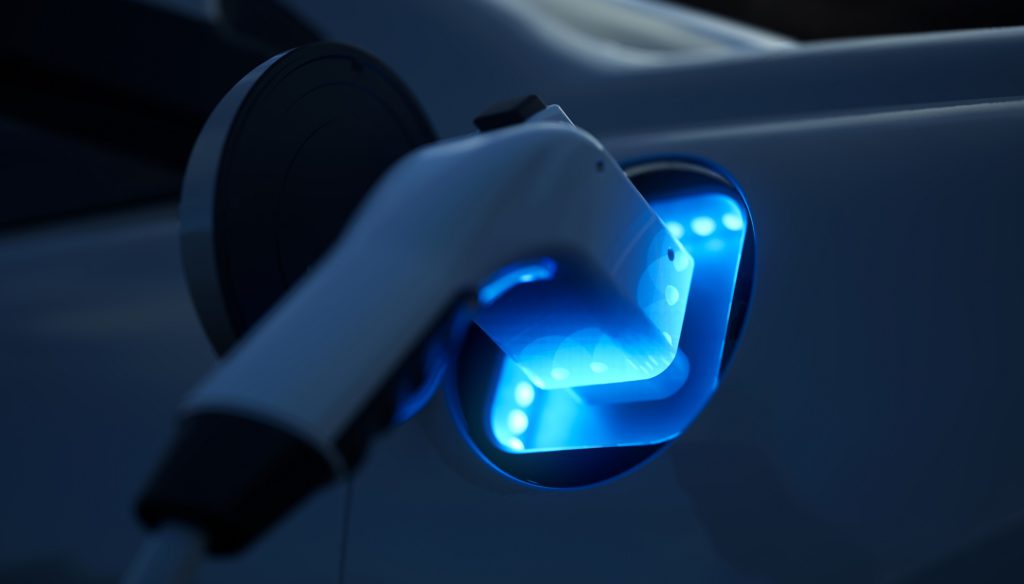EVs must lead the charge against UK production woes
28 January 2021

28 January 2021
After a year where UK car production declined by 29.3%, to roughly 921,000 units, manufacturers must adapt and take the turn towards electrically-chargeable vehicles (EVs). According to the latest figures from the UK’s Society of Motor Manufacturers and Traders (SMMT), the combined production of battery-electric vehicles (BEVs), plug-in electric hybrids (PHEVs) and hybrids (HEVs) rose to an 18.8% share of all cars built in the UK last year, up from 14.8% in 2019.
′These figures, the worst in a generation, reflect the devastating impact of the pandemic on UK automotive production, with COVID-19 lockdowns depressing demand, shuttering plants and threatening lives and livelihoods,’ said Mike Hawes, SMMT chief executive. ′The industry faces 2021 with more optimism, however, with a vaccine being rolled out and clarity on how we trade with Europe, which remains by far our biggest market.’
He identified the industry’s need to meet several immediate challenges, including overcoming additional customs burdens, regaining global competitiveness, all while delivering zero-emission transport. ′We will continue to work with government to attract investment in battery production and supply-chain transformation as we transition to smart and sustainable mobility, supporting jobs and driving economic growth nationwide,’ Hawes concluded.
Time to adapt
The UK automotive industry faces numerous challenges from the continued COVID-19 fallout, the reconfiguration of its trading relationship with the EU and rising to the challenge of clean transportation. On this last front at least, production does appear to be heading in the right direction. BEVs accounted for 4.5% of output, up from 3.4% in the previous reporting period. In total, the country produced nearly 173,000 ′alternatively-fuelled vehicles’ in 2020. The vast majority of these units, 79.6%, were exported out of the country, proof of the UK’s reliance on international trade.
But moving forward under the terms of the Brexit trade deal, manufacturers will need to make sure these vehicles must meet particular quotas of locally-sourced components within a staggered transition period of three, then six years. For example, accumulators and battery cells must either be produced in the EU or comprise no more than 70% non-EU components up to the end of the first period. Meanwhile, HEV, PHEV and BEVs can comprise no more than 60% non-EU or UK components. Failure to meet these quotas will mean the introduction of tariffs, despite the free-trade deal.
Investment after ICE
Alongside the ban on the sale of internal combustion engines (ICE) by 2030, this has left some companies’ UK manufacturing plans balancing precariously. The newly appointed CEO of Stellantis, Carlos Tavares, was recently unable to confirm what the future holds for its plant in Ellesmere Port. Meanwhile, Nissan has confirmed its commitment to its British plant, and will now move EV battery production to the country.
So, to make production in the country work, increased investment will be needed to build essential electric components locally. This does appear to be underway, with some £3.23 billion (€3.64 billion) worth of automotive investment announced for the UK last year.
However, over 80% of this amount was attributable to one company committing to a battery gigafactory, likely to be Britishvolt. ′More commitments of this nature will be essential for the future of a sector that is the country’s largest exporter of goods, turns over £78.9 billion annually and employs more than 180,000 people directly, with many more across retail and other indirect sectors,’ the SMMT said.
′The production and use of EVs has and will continue to soar as traditional companies adapt to a global push towards decarbonising the automobile industry. The sector continues to be at the forefront of fascinating and fast-moving technological innovation as the motor industry and the tech giants meet to help make EVs the norm,’ commented Andrew Aldridge, partner at investment company Deepbridge Capital. ′This includes all aspects across the industry, including but not exclusive to, battery innovation, manufacturing change, material supply chains, development of EV tyres and ancillaries, charging infrastructure and commerce developments.